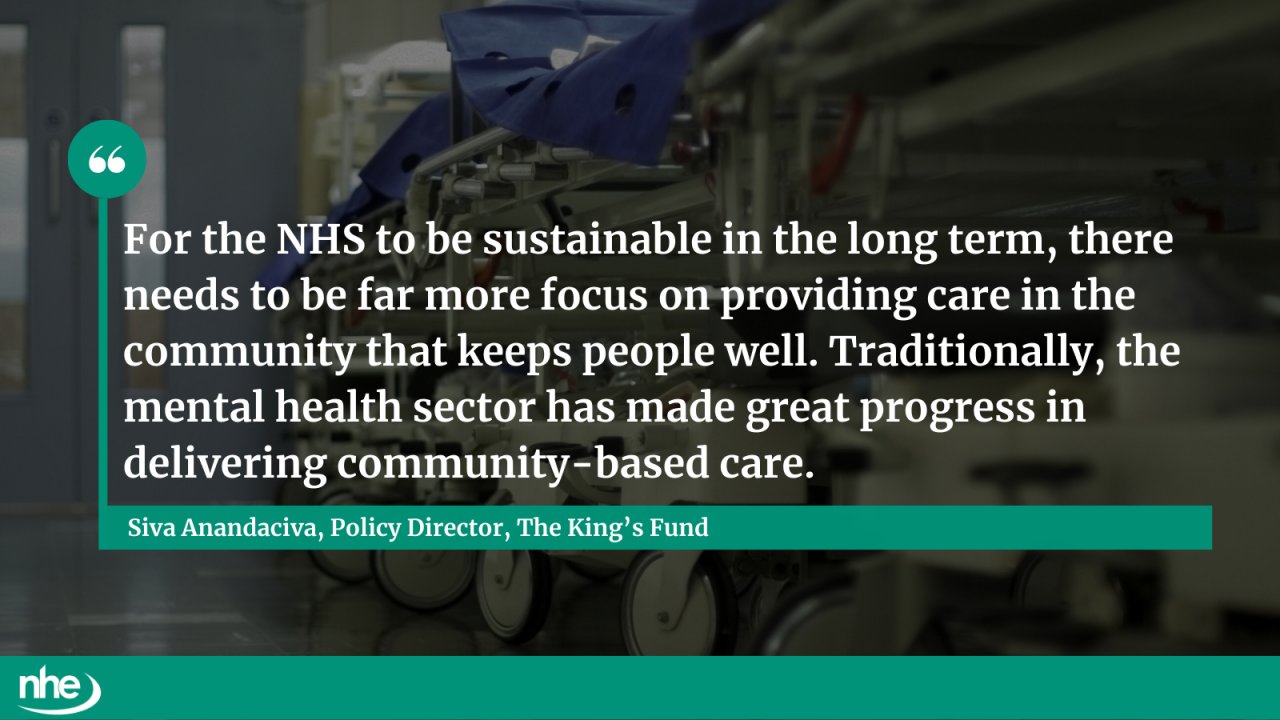A new study by The King’s Fund has revealed that a significant proportion of routine NHS mental health care is now being delivered by private companies, charities, and independent providers, with 29% of NHS-funded inpatient beds sourced from the independent sector.
The research, the first of its kind, shows that between January and March 2025, NHS trusts reported nearly 18,000 mental health beds, with 89.5% occupancy. However, an additional 7,195 beds were available in the independent sector for NHS use, highlighting the growing reliance on non-NHS providers.
While independent sector beds are free at the point of use, The King’s Fund warns that their use has evolved from surge capacity to a core component of mental health provision in England. This shift raises concerns about transparency, as independent providers are not subject to the same level of data collection as NHS services, potentially limiting insight into patient outcomes and experience, especially for those with complex needs.
The study found that independent providers are increasingly caring for:
- People with personality disorders
- Individuals with learning disabilities and autism
- Patients with severe mental health conditions
Researchers also highlighted the financial cost and potential for longer hospital stays, noting that the NHS has limited alternatives due to low capital investment in mental health infrastructure and insufficient community support.
The King’s Fund’s Policy Director, Siva Anandaciva, commented:
“Independent sector health care capacity acts as an important release valve for many NHS services when they face periods of high demand. It would make no sense to leave private beds empty when the NHS could purchase spare capacity and patients still receive care free at the point of use.
“However, our analysis reveals that there has been a significant increase in the share of NHS mental health inpatient care being outsourced to independent providers. Far beyond acting as valuable surge capacity, the NHS has become reliant on the independent sector for delivery of routine mental health care. This exposes the health service to greater risk of higher costs, could leave patients facing longer stays in hospital, and means the public has less transparent data about the quality of services.
“For the NHS to be sustainable in the long term, there needs to be far more focus on providing care in the community that keeps people well. Traditionally, the mental health sector has made great progress in delivering community-based care. However, some patients with greater or more complex mental health needs may need inpatient care, and the NHS must do all it can to treat people in the appropriate setting for their health needs.”

The findings underscore the urgent need for strategic investment in NHS mental health services and improved oversight of independent sector contributions to ensure quality, accountability, and equity in care delivery.
Image credit: iStock



















